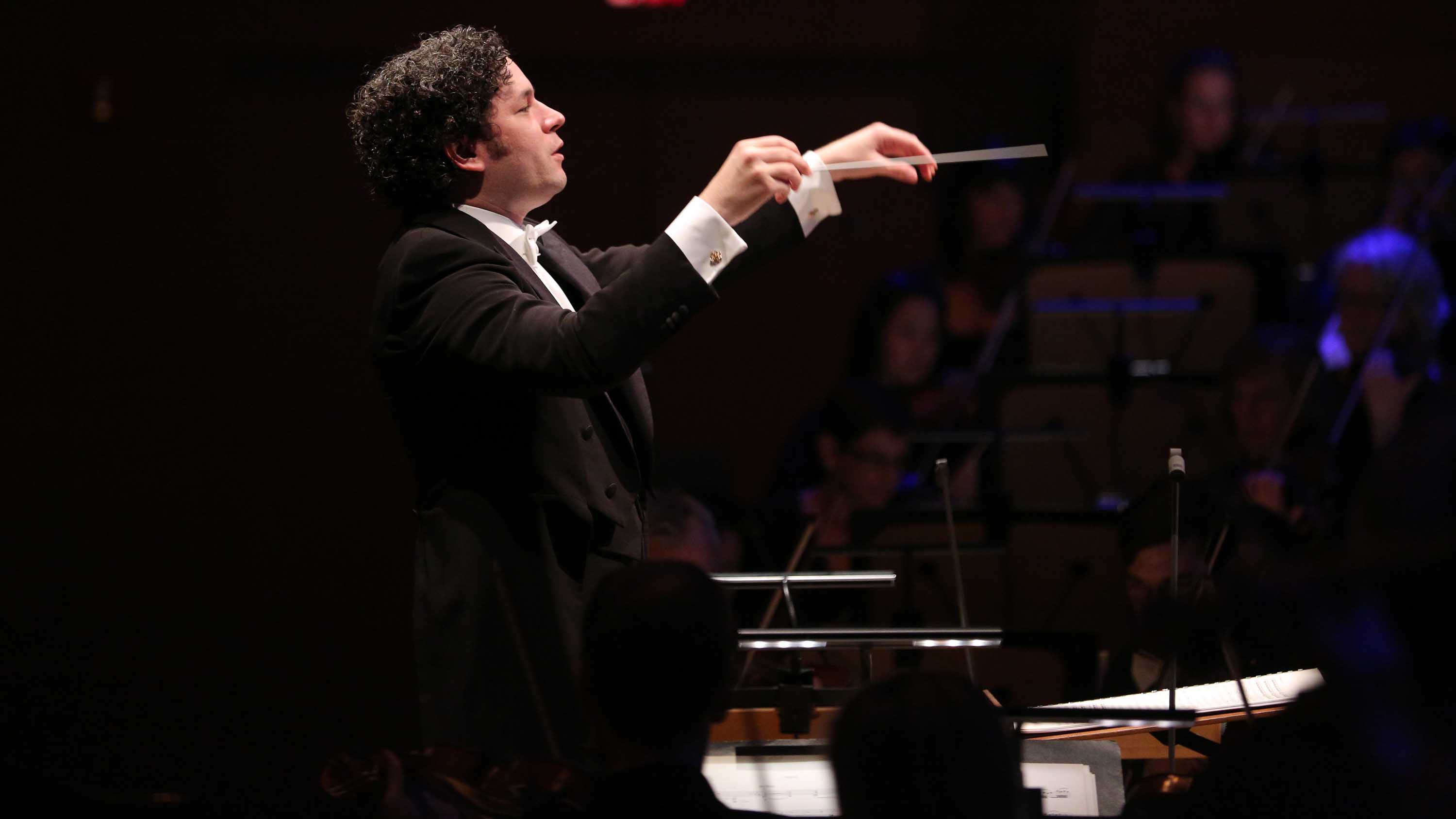Friday, March 31, 9 PM
The Los Angeles Philharmonic’s gala celebration of Williams’ peerless achievements reunites Williams with master violinist Itzhak Perlman, who performed on the composer’s original score for “Schindler’s List,” which earned both Oscars and Grammys. This gala opening night performance, hosted by Natalie Portman and featuring Music and Artistic Director Gustavo Dudamel, airs on Thirteen’s Great Performances.
The musical program is interspersed with a conversation between Williams and Dudamel, as well as archival interview footage, as the composer reminisces about his life and career. The son of a musician in New York’s CBS Orchestra in the 1930s and 40s, Williams remarks, “I thought when you grew up you became a musician, that’s the only kind of adult I knew… I grew up in the ambience of music.”
The broadcast also features soloists Dan Higgins, Glenn Paulson and Michael Valerio, the U.S. Army Herald Trumpets and the Los Angeles Children’s Chorus, led by Anne Tomlinson, along with members from the Angeles Chorale.
The program begins with the U.S. Army Herald Trumpets joining Dudamel and the orchestra in the Olympic Fanfare & Theme, which Williams composed for the 1984 Olympic Games and conducted at its premiere during the opening ceremonies in Los Angeles.
Next, Perlman joins the orchestra to perform three pieces from 1993’s “Schindler’s List”: “Remembrances,” “Jewish Town – Krakow Ghetto 1941” and “Theme.” (Perlman explains that wherever he happens to be in the world, he is asked to play the music from that film.) He also performs Williams’ original Cadenza and Variations from the 1971 film adaptation of “Fiddler on the Roof,” for which the composer won his first Academy Award.
The spirited piece is followed by excerpts from “Soundings” accompanied by video. At the time of the work’s premiere, Williams said that he thought of it “…as an experimental piece for Walt Disney Concert Hall in which a collection of colorful sonorities could be sampled in the Los Angeles Philharmonic’s new environment.” He elaborates on his inspiration for the piece in his talk with Dudamel.
The orchestra is then joined by soloists Higgins (alto saxophone), Paulson (vibraphone) and Valerio (string bass) to perform Williams’ delightful jazz-infused suite “Escapades” from “Catch Me If You Can.”
The program continues with the orchestra performing “Throne Room and Finale” from “Star Wars.” The animated artwork featured during the performance is from the Lucas Museum of Narrative Art’s “Star Wars” Archive, including the simple line drawings and more detailed graphic representations of what would ultimately become the live action movie. At the end of the piece, Dudamel acknowledges Williams, who stands from his seat to a rousing ovation.
For the first encore, the Los Angeles Children’s Chorus (LACC) sings “Dry Your Tears, Afrika” from the 1997 film “Amistad.” They are accompanied by additional singers from the Angeles Chorale.
The ominous opening measures of Williams’ Theme from “Jaws” cause the children chorus members to flee the stage in mock-terror (but of course with bright smiles on their faces). Dudamel then escorts the evening’s honoree to the stage, where Williams leads the orchestra in a performance of his famous “Imperial March” from “The Empire Strikes Back.” An onstage appearance of a phalanx of official Imperial Stormtroopers, heralds the arrival of one of history’s most infamous film villains, Darth Vader himself, carrying a light saber. Near the conclusion of the iconic theme, confetti in the shapes of “Star Wars” characters C3PO and R2D2 cascade down from the ceiling.
Full program
Olympic Fanfare and Theme
Three Pieces from “Schindler’s List”
Cadenza and Variations from “Fiddler on the Roof”
“Soundings”
“Escapades” from “Catch Me if You Can”
“Throne Room and Finale” from “Star Wars”
“Dry Your Tears, Afrika” from “Amistad”
“Imperial March” from “The Empire Strikes Back”





